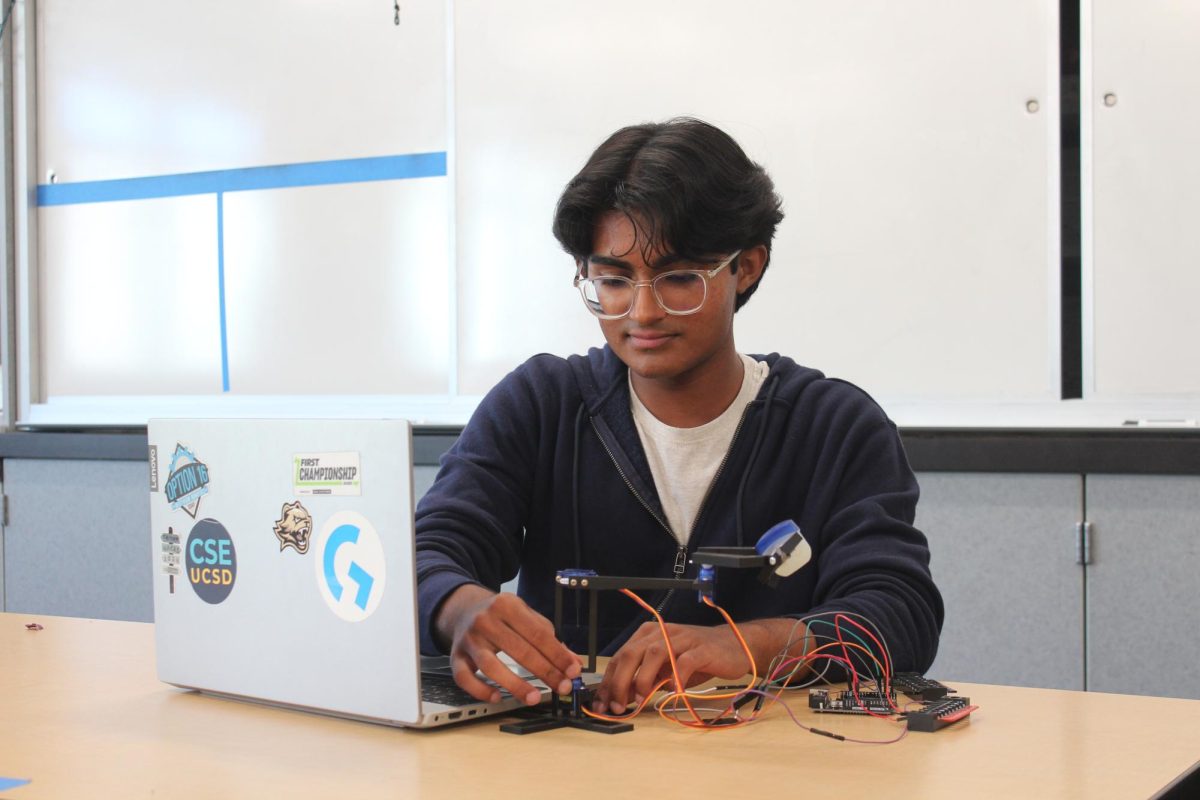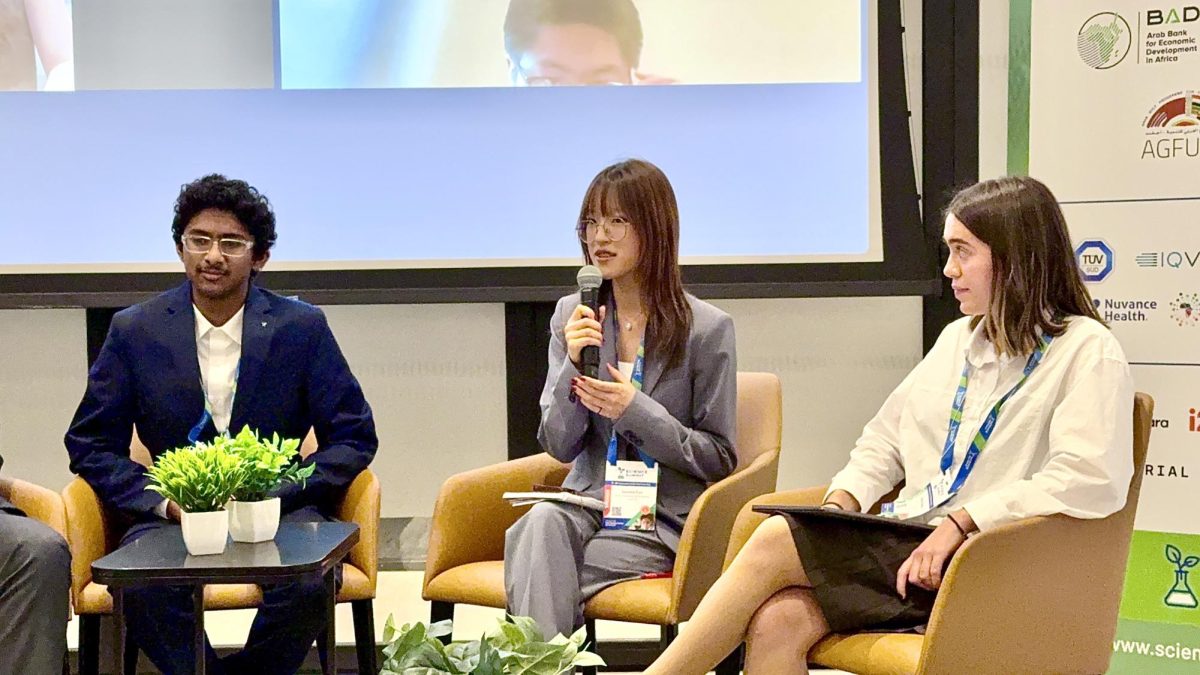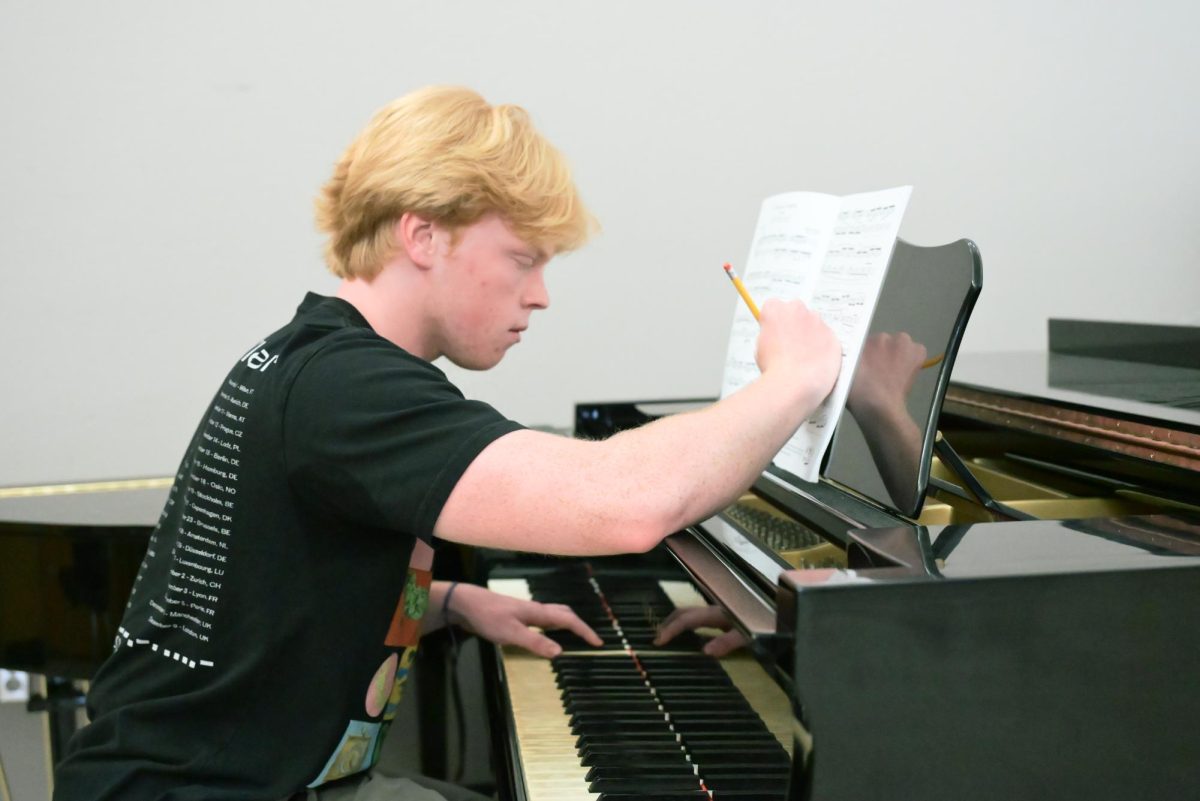Westview iGEM club spent their summer creating bacteria to decompose PET plastics: a material used in a wide array of plastic products like disposable water bottles and product packaging. For four years now, the club has come up with a new project to compete in iGEM’s worldwide synthetic biology competition, presenting their project to judges in Paris via zoom.. To create this plastic decomposing bacteria, the team first had to research what enzymes are able to break down plastic. Co-president of the club Emily Mitzner (12) says that this project builds off of the previous years. Last year, the group used regular PETase, which is an enzyme derived from bacteria in soil.
“We wanted to put it in a bacteria that lives in the ocean [water] because there’s a lot of pollution in the ocean,” Mitzner said. “This year we decided to use an enzyme that’s tweaked a little bit called fast PETase that is more stable and more efficient at degrading PET plastics.”
Through their research, the club found the DNA sequence that codes for the desired enzyme, and through processes called Gibson Assembly and Golden Gate Assembly, they were able to form the DNA. The team performed the initial lab work in E. coli because it accepts DNA effectively, and then later put it into the target bacteria: Alteromonas macleodii, a marine bacteria present in many oceans.
The team conducted their work at J. Craig Venter Institute (JCVI), in La Jolla, with the supervision and guidance of two mentor scientists, Dr Erin Garza, and Dr. Jocelyn Macho. Countless hours throughout the season, early spring to fall, are spent perfecting the project, with club members spending three to five hours at JCVI three times a week. Club members fill out applications to be placed on one of the contributing teams, Wet lab (in lab team), dry lab (computer modeling team) and scicomm (outreach). Teams are finalized in March, beginning lab work in June and finishing in October. After beginning lab work, the team ran into multiple setbacks.
“The machine and the computer that do the FTIR analysis [which tells us if the bacteria degrades the plastic] was not working the first day, so they had to get it fixed by maintenance,” Mitzner said. “We also had issues with contamination of our DNA, which meant that our DNA was wrong and was not doing what we needed it to do [to make the proteins]. We assumed that there was DNA contamination because we knew that we ordered the right parts, so the DNA should be right; however, we were still not getting the right results, so the best explanation was that the DNA was contaminated due to improper technique, storage, etc.”
Even with the lab and DNA contamination setbacks, Mitzner said that overall, the project was a success .They are hoping to place Gold, as the bacteria was able to break down PET plastics. Mitzner said that though winning would be exciting, iGEM has a more important role in opening up science opportunities to students.
“While there are many biology and science clubs at Westview, no club gives students the opportunity to work as closely with professionals as we do,” she said. “Also, no other STEM club, besides maybe robotics, gives students hands-on experience in the lab like iGEM does. As a high-schooler, finding lab experience is very difficult. We work on problems that relate to our community and we also combine lots of different aspects of science research. We use computer modeling and coding in lab work and outreach events and education to enhance and develop our project. In the coming years, we hope to also include more entrepreneurial goals, talking to stakeholders and professionals that relate to our project.”






